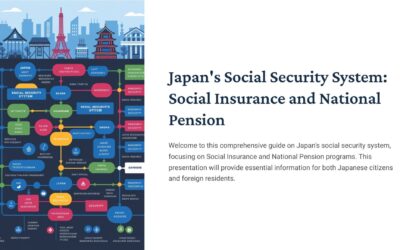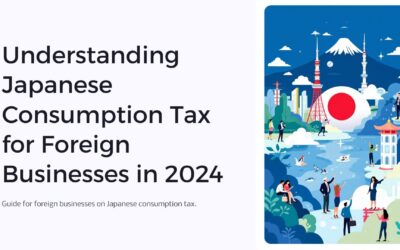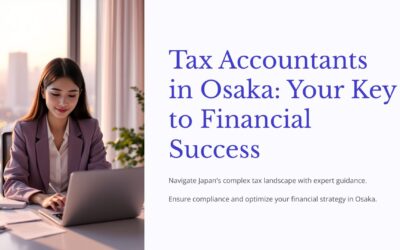Have you ever wondered if your lunch at work is a business deduction? If so, this blog is the answer. It will explain whether your daily lunches are considered a business deduction and how to ensure they are correctly accounted for. Whether you are a sole proprietor or a company, this can be a good starting point to consider the lunch expense as Keihi[経費].
Are Lunch deductible?

As of 2021, the average cost of lunch for a salaried worker in Japan is estimated to be approximately JPY700 to JPY1,000. However, there are differences depending on the city and the type of work.
According to the survey conducted in March 2021 among restaurant operators by the Japan Restaurant Merchants Association, the average cost of lunch at a typical company cafeteria for company employees in urban areas is approximately JPY680 nationwide.
According to the 2019 survey by the Food Service Journal, the average amount of money spent for lunch by a typical company employee in Tokyo is approximately JPY1,036. A 2019 survey by Rakuten Securities of male and female office workers in their 20s to 60s found that the average cost of lunch on weekdays is about JPY831.
Some may want to consider this as a deduction(Keihi).
What is Keihi?
Keihi[経費] means an expense in Japanese, which sounds like a minus of your sales in business use. It is strongly related to business income and has no relationship with salary income.
In my experience, English speakers easily understand Keihi with “deduction”, not “expense”.
The critical point is that Keihi can deduct your business profit in the view of tax. The understanding is that a fee can be subtracted from income. Income minus costs is called profit. Taxes are on this profit.
In other words, the more expenses you have, the more you can deduct from your income, and the lower your taxes will be. Conversely, if Keihi is disallowed, there will be a cash outflow but no tax reduction.
Examples of deductions include buying necessary materials and classifying them as “supplies” or transportation costs for travel to and from work as travel expenses.
In the case of a sole proprietorship,
For individuals, the Income Tax Law is involved. Keihi is often considered in business income, and the official technical term is “necessary expenses”(Hitsuyou Keihi[必要経費]). They must be related to the business.
The distinction between household and necessary expenses is examined in detail for sole proprietors. For example, if you have a meeting over a meal, you can write it off as a “meeting expense,” but is the appointment necessary for the business?
A common disallowance is to include the cost of a meal with family members as a meeting expense. The excuse is also apparent.
We thought about the future of the business over a meal, so it is correct to include it as a “meeting expense”(Kaigihi[会議費]).
It will almost always be denied in a tax audit. On the other hand, if you don’t have “future business matters,” would you not have a meal with your family? That should not be the case. So, it cannot be a necessary expense.
In the case of a company
In the case of a company, corporate tax law is also involved.
For corporations, it is expressed as “deductible expense”(Sonkin[損金]). The expenses such as meeting expenses that are considered deductible expenses are described as Operating Expenses for the relevant fiscal year (Here for convenience it is about Tougai Jigyounenndo no Hanbaihi、Ippnan Kanrihi Sonotano Hiyou[当該事業年度の販売費、一般管理費その他の費用]).
However, whether a meal for two with the wife (husband) is deductible or not is a delicate point. The husband and wife are assumed to be officers of the company, and if so, it may be viewed as a special arrangement by the company for the officers. Therefore, it may not even be included in the deductible expenses of directors’ salaries.
As you can see, there are some complications when discussing this.
How to record journal entries and how to think about each

How to record lunch expenses
In principle, there are three patterns when it comes to lunch expenses
When to be a meeting expense
Here is the journal entry.
| Date | Debit | Credit | Description | ||
| Feb 22 | Entertainment Expense(Kousaihi) | 6,600円 | Cash(Genkin) | 6,600円 | Gasoline for Car A |
| Date | Debit | Credit | ||
| Feb 22 | Meeting Expense(Kaigihi) | 6,600円 | Cash(Genkin) | 6,600円 |
Whether or not a lunch meeting is recognized as a meeting depends on the purpose of the meeting. If the meaning of the meeting is clear and all participants are necessary for business purposes, it can be recorded as a meeting expense. However, a light meeting within the company may not be considered a meeting.
If lunch expenses are to be recorded as meeting expenses, they must be necessary for the business of all participants. For example, if an outside person is invited to a meeting, the cost of that person’s lunch may be included as a meeting expense; however, if an employee with a private function attends the meeting, the cost of that lunch cannot be included as a meeting expense.
When lunch expenses are recorded as a meeting expense, they are usually recorded as an expense. When recording the cost as a meeting expense, it should be clearly stated that it is being registered as a meeting expense. In addition, since receipts are required, you should always obtain and keep receipts.
Also, accurately record the expenses by the company’s expense rules and regulations regarding meetings.
In the case of expenses for employee benefits
The journal entry for employee benefit expenses is as follows
| Date | Debit | Credit | Description | ||
| Feb 22 | Entertainment Expense(Kousaihi) | 6,600円 | Cash(Genkin) | 6,600円 | Gasoline for Car A |
| Date | Debit | Credit | ||
| Feb 22 | Benefits expense(Fukuri Kouseihi) | 6,600円 | Cash(Genkin) | 6,600円 |
When recording lunch expenses as employee benefit expenses, the following points should be noted: The cost recording method differs depending on whether the lunch is provided to all employees or a specific employee. If the lunch is offered to (almost) all employees, it can be recorded as a benefit expense. On the other hand, if the lunch is provided to specific employees, it may be classified as salaried income or (in-house) entertainment expenses.
The reason for recording the expense as a benefit expense should be apparent. In hindsight, it is more noticeable if the reason for recording the cost as a benefit expense is apparent. Naturally, receipts are required, so obtain and retain them.
Please record the expense accurately by the company’s benefit and expense rules.
In the case of entertainment expenses
The journal entry for entertainment expenses is as follows
| Date | Debit | Credit | Description | ||
| Feb 22 | Entertainment Expense(Kousaihi) | 6,600円 | Cash(Genkin) | 6,600円 | Gasoline for Car A |
When recording lunch expenses as entertainment expenses, the lunch recipient must be someone outside the company. If the recipient is a person within the company, etc., the expense is considered an internal entertainment expense.
When recording as entertainment expenses, the expense is registered as an expense. Therefore, a receipt is required. The token should indicate the name and title of the person you are socializing with and details such as the cost of the food and beverages. In addition, the purpose and background of the socializing should be noted in the remarks section.
Concept of Tax Exemption and Expense Expenditure

Scope of tax exemption based on the amount of expenses incurred
The following two conditions must be met for a lunch to be recorded as a benefit expense. According to the IRS guidance, they will be taxed as salary if they are not met.
The officer or employee is responsible for more than half of the value of the meal.
The following amounts are 3,500 yen per month (excluding consumption and local consumption taxes). The following amount must be less than or equal to 3,500 yen per month (excluding consumption tax and local consumption tax)
(the value of the meal) – (the amount borne by the officer or employee)
The employee must pay at least half of that lunch (bento) cost, and the meal cost borne by the company must be less than 3,500 yen (excluding tax) per month.
For example, suppose that the number of working days a month is 25 and the daily lunch box cost is 500 yen. If the employee pays 400 yen and the company pays 100 yen, the monthly fee would be 2,500 yen and can be recorded as a benefit expense.
Please note that the expense will be taxed as employment income if this condition is not met.
In addition, meal expenses refer to these costs.
If the company purchases and provides lunch boxes, etc., the amount paid to the vendor.
If meals prepared by the company are provided at the company cafeteria, etc., the total expenses directly incurred to prepare the meals, such as the cost of ingredients and seasonings, etc.
Tax Exemption Scope 2
Meals provided for overtime or overnight work do not have to be taxed as salary, even if offered for free. If the meal cannot be given in kind and is provided in cash, it is okay to give an amount of no more than 300 yen per meal, excluding consumption tax.
The entire amount will be taxed as salary if it exceeds this amount.
How to apply for lunch expenses

As well as for tax purposes, it is also a good idea to clarify the application method in terms of creating discipline within the company or organization. A sole proprietorship may be a little rougher since we use a company as an example.
It may become arbitrary for a sole proprietorship, for example. However, it may become unfair when the organization grows more prominent. It is difficult to change an organization’s culture in the middle of the process. Think ahead to the future.
Cautions and Troubles

It is a point to consider whether the expenses are essential.
In the case of meeting expenses
The application must include a detailed explanation because the expenses must be justified according to the nature of the meeting. It may be after the fact.
The expenses to be applied for may vary depending on the number of employees attending the meeting and their titles. Therefore, each company’s expense rules must calculate the exact amount.
The method and deadline for payment of conference expenses may need to be coordinated with the accounting department. It is required to do so within budgetary limits.
Employee benefit expenses
Employee benefit expenses are to be paid for employee welfare and health care, not for personal use. Therefore, if lunch expenses are to be charged as employee benefit expenses, it must be clearly stated on the application form.
In principle, all employees are eligible for lunch expenses, but some companies offer benefits based on position or years of service, so care must be taken.
If the expense rules and regulations regarding benefit expenses are unclear, problems may arise in making payments. Therefore, it is essential to check with the accounting department in advance.
Entertainment Expenses
Entertainment expenses are intended to deepen relationships with suppliers and business partners and cannot be spent for personal purposes. Therefore, if you wish to include lunch expenses as entertainment expenses, you must indicate this in your application.
Entertainment expenses include banquets and entertainment. Since different companies have different application methods and maximum amounts for each type of expense, it is necessary to check the expense rules in advance.
The method and deadline for payment of entertainment expenses may need to be coordinated with the accounting department. In addition, spending entertainment expenses violating the law or corporate ethics is not allowed, and careful judgment is required.
Troubles
The following problems may occur.
Using entertainment expenses for personal purposes: Since they are paid for business purposes, they cannot be used for private purposes. For example, charging lunch and entertainment expenses for private events such as one’s birthday or family anniversaries is illegal.
Improper Claiming of Expenses: If the rules regarding entertainment expenses are unclear, wrong claims may be made. For example, they make payments to nonexistent suppliers or customers or charge higher amounts than paid.
Entertainment expenditures in violation of regulations: Companies are not allowed to make spending contrary to the law or business ethics. For example, bribes and illegal political contributions are strictly prohibited.
To avoid these problems, it is essential to apply for expenses by the expense rules and to raise proper awareness among employees. Using lunch expenses appropriately per the expense rules will enhance the company’s credibility and ensure smooth business operations.
Lunch and Motivation Devices

Motivation
Lunch is an essential part of our daily lives, and the same is true at work, where lunch can affect motivation. In this article, we will discuss the relationship between lunch and motivation.
First, lunch is a source of energy for work. If you are hungry at work, your concentration may be distracted, and your productivity may suffer. Therefore, having a solid lunch will replenish your energy and help you finish your job. Lunch also activates the brain and relieves stress.
Communication
Second, lunch is also a social occasion. Lunch allows you to communicate with your coworkers and supervisors, which helps to build relationships. You may also gain new ideas and knowledge through lunch. Therefore, lunch plays an important role not only for work but also for socializing.
Nutrition
So what can we do to increase motivation through lunch? First, it is essential to eat a healthy and nutritionally balanced meal. Excessive malnutrition or an unbalanced diet can hurt the body and brain. Therefore, eating a well-balanced diet that includes vegetables, fruits, and protein is essential.
It is also essential to find a place to have a good lunch, such as a set lunch restaurant or a café. Eating a good lunch can help you relax and refresh before you start working.
Teamwork
Also, having lunch with your coworkers and supervisor is essential. Being able to talk about work and your personal life can help you understand each other better and improve teamwork. In addition, enjoying your lunchtime may increase your motivation to work.
Cautions
There are some crucial points to remember when motivating people through lunch. First, be careful not to spend too much time at lunch. A long lunch period can decrease productivity. In addition, extreme opinions or statements at lunch may cause relationships to deteriorate. Therefore, it is essential to use common sense.
Nutritional balance at lunch is another crucial aspect. Some meals can cause drowsiness and lethargy. In particular, fatty foods and meals high in carbohydrates can cause a rapid rise in blood glucose levels, followed by a sharp drop. Such a diet may cause a decrease in motivation. Therefore, it is essential to keep a well-balanced diet.
These are some of how lunch and motivation are discussed. Lunch is not just a time for nourishment; it also plays a vital role in work. By all means, let’s make our work more fulfilling by devising ways to increase our motivation through lunch.
The trend of other companies to expense lunch

Example of ITOCHU Corporation’s Breakfast
ITOCHU Corporation uses its breakfast to boost motivation and regulate the rhythm of its employees’ lives. Families with children must be at home at night when they work together. Making it a morning affair is a great approach.
ITOCHU Corporation’s breakfast example is in the text to the left of the first example.

Note that those above cannot be used since the notification can be read backward to state that breakfast does not constitute an evening meal.
Leftover snacks and side dish service

There is also a service that leaves snacks and lunch as leftover snacks. In this case, there is almost no concern about taxation as it is an extension of self-pay, so use it according to the situation.
Office Glico
Office Glico is one of the corporate services offered by Glico Corporation, which regularly delivers drinks and snacks that can be consumed in the office or workplace. Specifically, coffee, tea, juice, and snacks are offered. Office Glico provides various plans to suit your company’s size and needs. You can flexibly choose from regular monthly delivery plans to daily delivery plans. Dedicated refrigerators and sales racks are also provided for the smooth management of deliveries.
Office Convenience Store
Office Convenience Store is a service that uses vending machines and fixtures installed in the office to provide products for daily use by employees. A leftover snack service may be offered as one of the services in an office convenience store. By regularly replenishing snacks and beverages that employees can freely take, the service is expected to improve employee motivation and promote communication. Office convenience stores are required to offer various products to meet the needs of companies as part of the work style reforms that have been gaining attention in recent years.
Office Okan
Office Okan is a healthy prepared food product manufactured in Japan and offered at 100 yen per item. Supervised by a registered dietitian, the menu offers over 20 monthly items. They can be utilized for lunch, breakfast, snacks, and dinner and can also be used to prevent infectious diseases since the meals are complete. You can also choose the refrigerator and vending machine size to fit offices ranging from three to several thousand people. Furthermore, the system can improve employee satisfaction and realize health management, and reliable introduction support is also available.
OFFICE DE YASAI
OFFICE DE YASAI was introduced to promote employee health management as part of health management. Installing a refrigerator in the office allows fresh salads, fruits, and healthy side dishes to be easily purchased. Employees can buy items for as little as 100 yen each, making it possible to provide nutritious meals at a more economical price than convenience stores. Since the delivery staff manages the products and collections, there is no hassle, and the service also offers unique products supervised by a nutritionist, safe and secure product management/distribution management, and after-sales follow-up services after introduction. In addition, two plans, Office Yasai and Office Gohan, are available for customers to choose from according to their needs.
In summary

In this issue, we have listed the information. Of the many pieces of information, it is up to each entrepreneur or company to decide which one best fits their needs.
We are available to consult with you on an advisory or spot basis.




